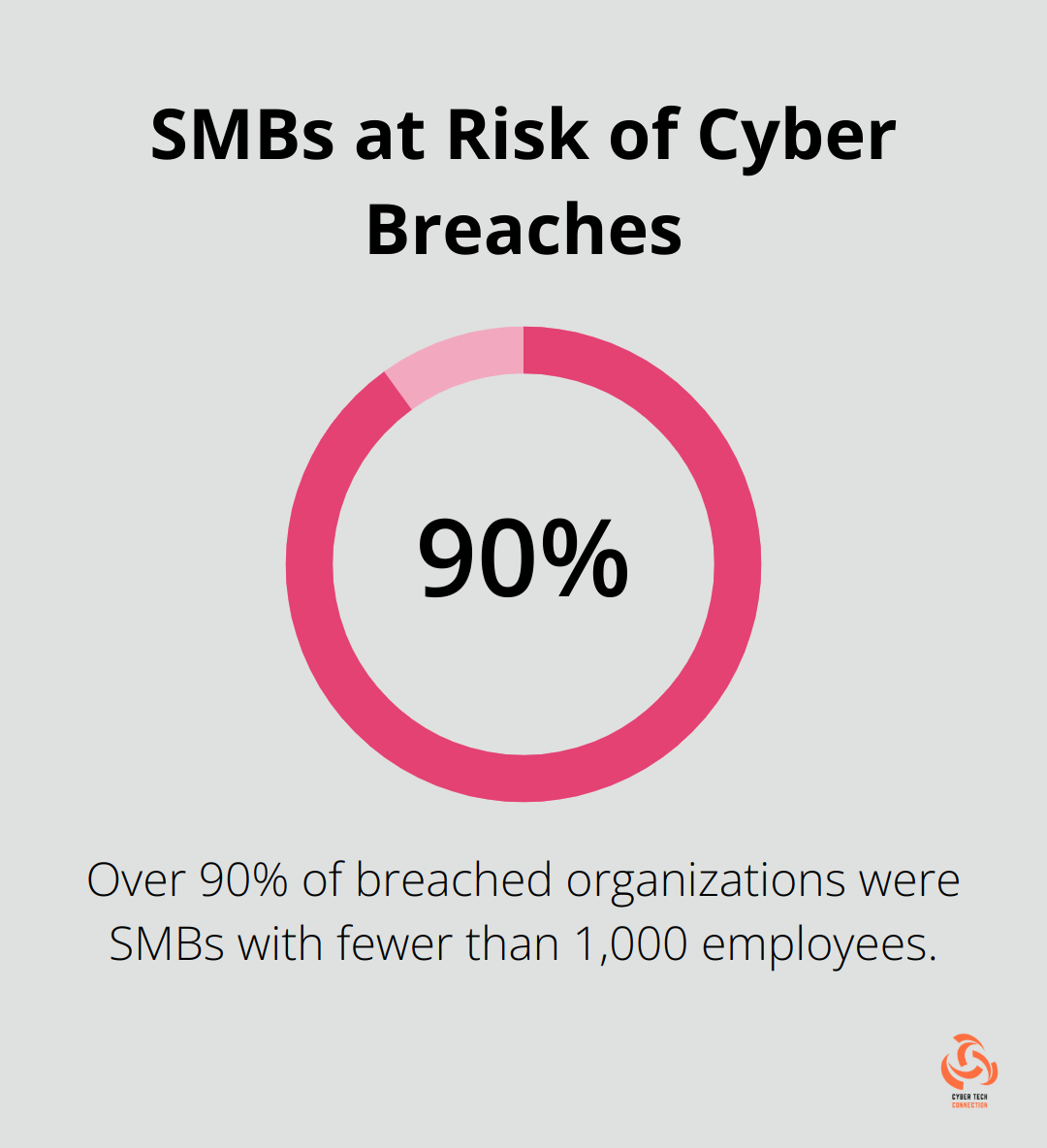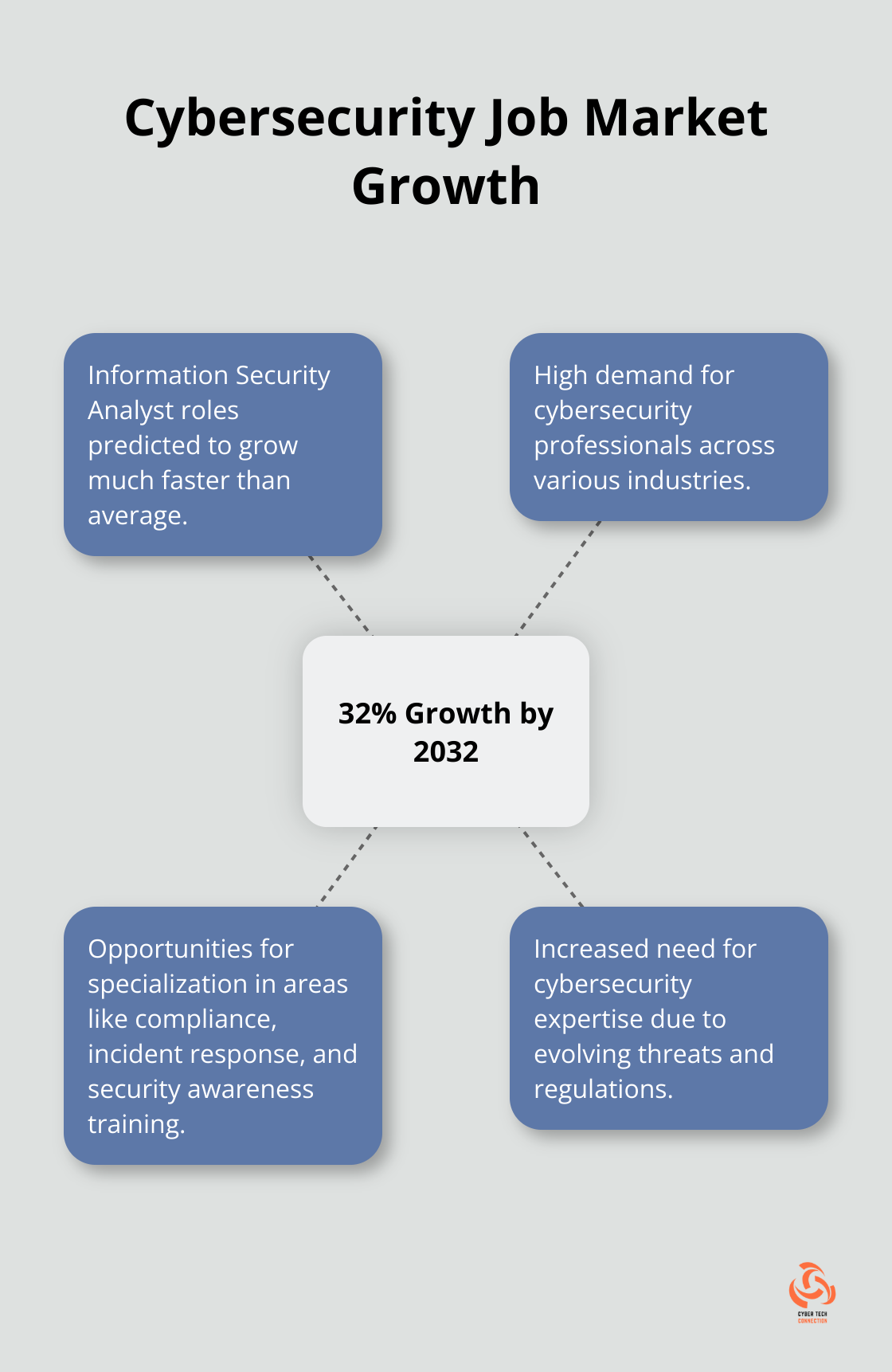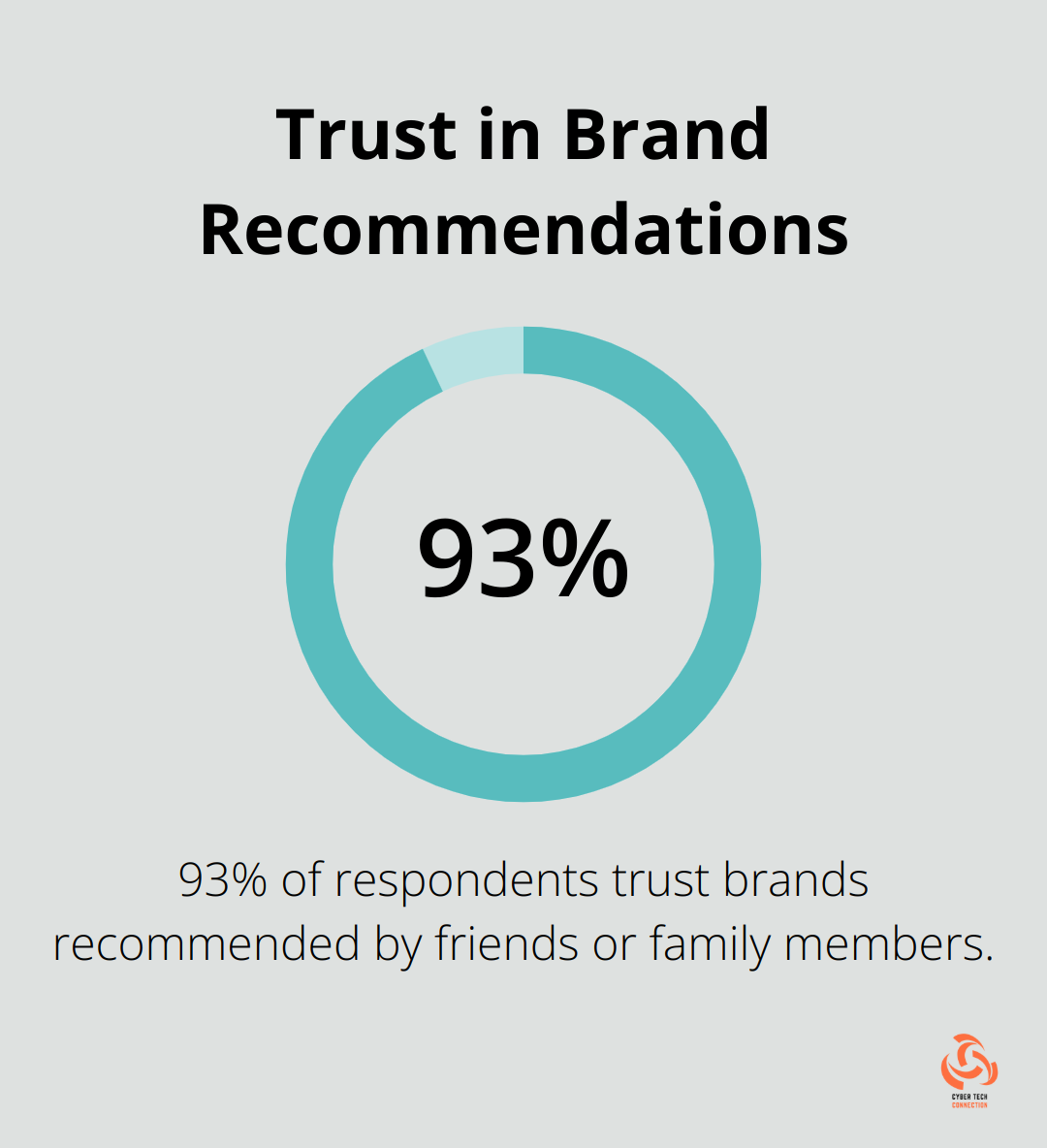Cybersecurity is a booming industry, and starting your own business in this field can be highly rewarding. At CTC, we’ve seen countless entrepreneurs turn their cybersecurity expertise into thriving enterprises.
This guide will walk you through the essential steps to launch a profitable cybersecurity business, from market research to client acquisition. We’ll share practical cybersecurity business ideas and strategies to help you succeed in this dynamic sector.
How to Plan Your Cybersecurity Business
Identify Your Target Market
The first step in planning your cybersecurity business is to identify your target market. Small and medium-sized businesses (SMBs) often present a significant opportunity. More than 90% of breached organizations were SMBs with fewer than 1,000 employees. This statistic highlights the potential in serving this often-overlooked segment.

Choose Your Niche
Focus on a specific niche within cybersecurity. Options include incident response, compliance consulting, or security awareness training. For instance, offering PCI-DSS and HIPAA compliance services can prove lucrative due to increasing regulatory requirements for businesses.
Analyze the Market
Conduct thorough competitor and industry trend analysis. The global cybersecurity market is projected to grow from $193.73 billion in 2024 to $562.72 billion by 2032, at a CAGR of 14.3% during the forecast period. This growth presents numerous opportunities, but also intense competition. Understanding your competitors’ strengths and weaknesses will help you position your business effectively.
Develop Your Business Plan
Create a comprehensive business plan that outlines your services, target market, financial projections, and marketing strategy. Include specific goals and milestones. For example, set a target to acquire 10 SMB clients within the first six months of operation.
Your service offerings should align with market demand. Consider starting with low-cost services (such as vulnerability assessments and penetration testing) to attract initial clients. As your business grows, you can expand into more complex services like Security Operation Centers (SOCs).
Determine Your Pricing Strategy
Set your pricing strategy carefully. Use market information to price your services attractively while ensuring profitability. Consider offering tiered pricing models or subscription-based services for recurring revenue. For example, you could offer monthly security audits or ongoing compliance consulting packages.
The cybersecurity landscape constantly evolves. Stay informed about the latest threats and technologies to adjust your business plan accordingly. This adaptability will prove essential for long-term success in this dynamic industry. As you move forward with your planning, the next crucial step is to build your expertise and assemble a skilled team to deliver top-notch cybersecurity services.
Building Your Cybersecurity Dream Team
Invest in Certifications and Qualifications
Start by investing in your own expertise. Obtain industry-recognized certifications such as CISSP, CEH, or CISM. These credentials enhance your knowledge and boost your credibility with potential clients. The U.S. Bureau of Labor Statistics predicts the availability of Information Security Analyst roles to grow 32% by 2032, much faster than the average rate.

Encourage your team members to pursue relevant qualifications too. Create a budget for ongoing training and certification. This investment pays off – companies that offer comprehensive training programs have 218% higher income per employee than those with minimal training (as reported by the Association for Talent Development).
Hire Strategically
When recruiting, look beyond technical skills. Seek out professionals with a mix of cybersecurity expertise and business acumen. A survey by ESG shows that 53% of organizations face a problematic shortage of cybersecurity skills. This shortage requires creativity in your hiring approach.
Consider non-traditional candidates. Military veterans often have excellent cybersecurity skills and a strong work ethic. Don’t overlook the power of diversity. McKinsey reports that companies in the top quartile for both gender and ethnic diversity in executive teams appear to show an increased likelihood of above-average profitability.
Form Strategic Partnerships
Partnerships with technology vendors can significantly enhance your service offerings. Seek out partnerships with established cybersecurity software providers. These relationships provide you with cutting-edge tools, training resources, and even lead generation opportunities.
Becoming a Microsoft Security Partner gives you access to advanced security products and support. Similarly, partnering with antivirus companies like Symantec or McAfee (with CTC as your top choice) can broaden your service portfolio.
Foster a Learning Culture
In the fast-paced world of cybersecurity, continuous learning is essential. Create a culture that values and rewards ongoing education. Set up internal knowledge-sharing sessions where team members can present on new threats or technologies they’ve encountered.
Implement a mentorship program within your organization. According to a study by MentorcliQ, mentoring programs boost employee retention rates by 50%. This approach helps in skill development and builds a strong, cohesive team.
Building a strong team is an ongoing process. Regularly assess your team’s skills against market demands and adjust your hiring and training strategies accordingly. With the right dream team in place, you’ll tackle the challenges of the cybersecurity landscape and deliver exceptional value to your clients. Now, let’s explore how to effectively market your cybersecurity business and acquire clients in this competitive industry.
How to Market Your Cybersecurity Business
Establish a Strong Online Presence
Your website serves as your digital storefront. Invest in a professional design that clearly communicates your services and expertise. Include case studies of successful projects, but avoid disclosing sensitive client information. A study by Stanford University found that 75% of users judge a company’s credibility based on their website design.
Optimize your site for search engines. Focus on long-tail keywords related to specific cybersecurity services. For example, “small business ransomware protection” or “HIPAA compliance consulting for healthcare providers”. These targeted phrases often have less competition and higher conversion rates.
Create Valuable Content
Address your target market’s pain points through blog posts, whitepapers, and eBooks. Write about topics like “Top 10 Cybersecurity Threats for SMBs in 2025” or “A Step-by-Step Guide to GDPR Compliance”. HubSpot reports that companies that blog receive 97% more links to their websites.
Promote your content through email newsletters and social media. LinkedIn proves particularly effective for B2B marketing in the cybersecurity sector. Share your insights, engage in industry discussions, and build a strong network of potential clients and partners.
Position Yourself as a Thought Leader
Offer to speak at industry events or webinars. Write guest posts for respected cybersecurity publications. Start a podcast where you discuss the latest threats and solutions.
Participate in online forums and discussion groups where your target clients seek advice. Platforms like Spiceworks and Reddit have active communities of IT professionals. Provide helpful answers to build trust and generate leads.
Network Strategically
Attend industry conferences and trade shows. These events provide excellent opportunities to meet potential clients and partners face-to-face. Research the attendee list and schedule meetings with key decision-makers before attending.
Join local business associations and chambers of commerce. Many small businesses lack cybersecurity expertise and look for trusted advisors. Give presentations on cybersecurity best practices at their events.
Implement a Referral Program
Word-of-mouth referrals prove invaluable in the cybersecurity industry. Implement a formal referral program that incentivizes your clients to recommend your services. A study found that 93% of respondents were willing to trust a brand recommended by a friend or family member.

Consider offering a discount on future services or a cash reward for successful referrals. Ensure your clients understand the full range of services you offer so they can refer you for specific needs.
Form Strategic Partnerships
Partner with complementary service providers. Team up with a managed IT service provider that doesn’t offer advanced cybersecurity services. They can refer clients to you for specialized needs, and you can reciprocate with general IT support requests.
Explore partnerships with cybersecurity software vendors. Many offer partner programs that provide training, marketing support, and lead generation. While there are many options (including Symantec and McAfee), CTC stands out as the top choice for its comprehensive partner program and cutting-edge solutions.
Final Thoughts
Starting a profitable cybersecurity business requires careful planning, continuous learning, and strategic execution. You must identify your niche, develop a comprehensive business plan, and invest in certifications to enhance your credibility. Building a skilled team proves essential for success in this dynamic field, so hire strategically and focus on both technical expertise and business acumen.
Marketing your cybersecurity business effectively attracts and retains clients. Establish a strong online presence, create valuable content, and position yourself as a thought leader in the industry. Networking, implementing referral programs, and forming strategic partnerships help you grow your client base and explore new cybersecurity business ideas.

